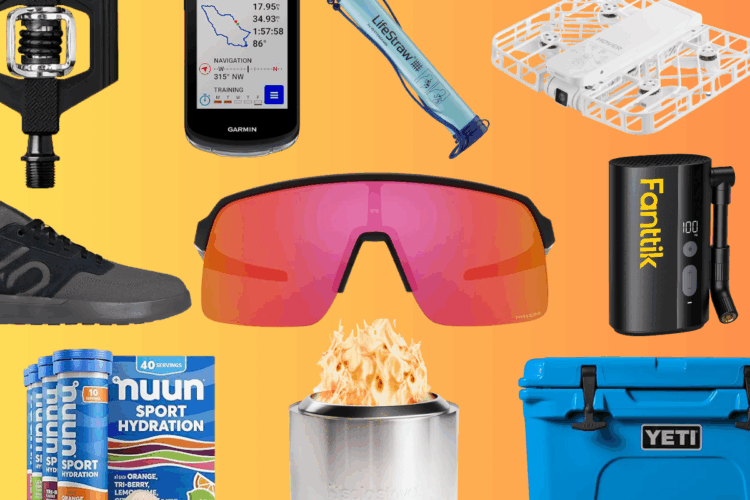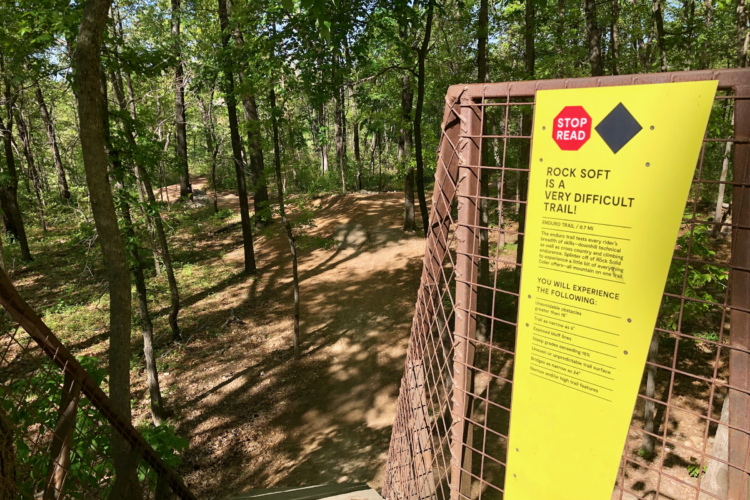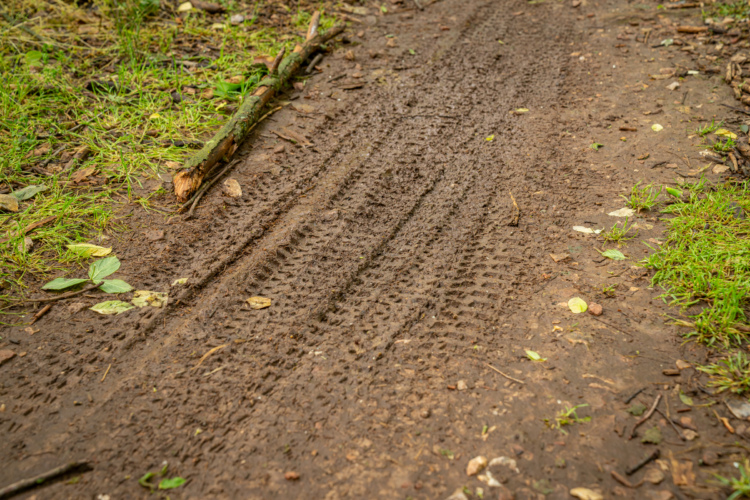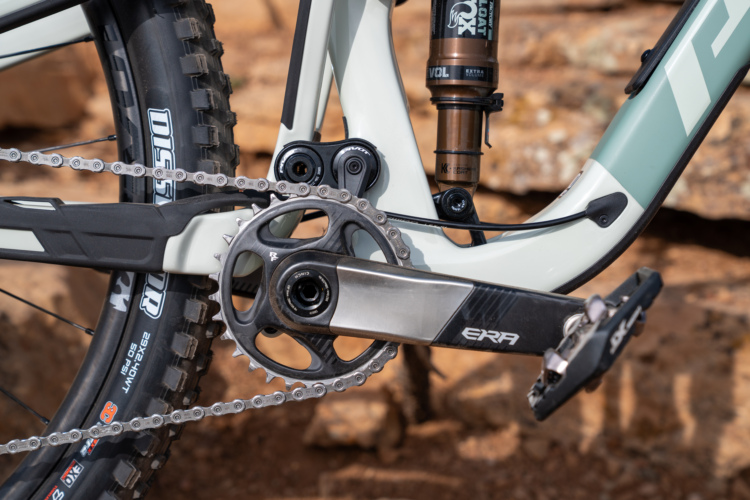
It’s hard to say when the bike industry reached peak fat bike, but judging by news stories from the Singletracks archives, it seems to have happened around 2015.
It was at Interbike in 2015 that we profiled 22 brand new fat bikes that had been released that year, up from the 15 models we counted in 2014. Everyone from small, boutique bike brands to the major players either already had or had just introduced a fat bike to their lineup. At the same time, brands dedicated almost exclusively to fat biking were being established as well, swelling the number of models to choose from. In fact, the whole scene was not unlike what we’re seeing with gravel bikes today.
We decided to check in and see what the fat bike class of 2015 is up to and found 11 of the 22 bikes introduced that year are no longer in production. A 50% decline appears to be pretty steep, yet as it turns out, there isn’t a singular explanation as to what happened. As they say, it’s complicated.
The bike industry is tough

The saying goes that the way to make a million dollars in the bike industry is to start with two million (or maybe it’s more like ten). In any event, a few of the brands that introduced fat bikes in 2015 are either no longer in business or they’ve been sold to new owners.
In 2015 Advocate Cycles was set to change the bike industry as one of the first to establish itself as a B-corporation, pledging 100% of profits to cycling advocacy. Singletracks even completed a long-term test of the Watchman fat bike in 2016. Sadly, the Watchman and Advocate Cycles itself no longer exist. Esker Cycles seeks to pick up the mantle from Advocate, though that brand is not currently offering a fat bike in their line.
Fuji debuted the Wendigo in 2015 as a low-cost, mass-produced fat bike. About a year later Fuji bought Performance Bike, a US-based chain of bike shops that eventually bankrupted the whole operation. The Fuji bike brand is still around under new ownership, though it appears the Wendigo didn’t survive.
Ellsworth is another brand that debuted one of the slickest-looking fat bikes we had seen called the Buddha. Just a few months later the brand was sold for the second time in 18 months. The new owners appear to be focusing on a much slimmer line, which unfortunately for fat bike enthusiasts doesn’t include the Buddha.
Strategic shifts
Fat bikes occupy a unique space in the bicycle market and in 2015 it wasn’t clear where they fit exactly. Even today it’s hard to find fat bikes on many brands’ websites — are they under the “mountain bike” category or under a separate heading for “fat bikes”?
Raleigh is a brand that showed two fat bike models at the 2015 Interbike trade show — the Rumson and Pardner — which were subsequently dropped from the line. Jill Nazeer, marketing director for Raleigh parent company Alta Cycling Group, says the company “decided to focus on [sister brand] Diamondback fat bikes rather than having two brands with the same type of product. We definitely still see demand for those bikes and they’re a very popular Diamondback option!” Matt is currently testing a Diamondback fat bike this winter so look for that review later this year.
Interest in fat bikes has peaked

Of course another explanation is that interest in fat biking has simply peaked. Or, it’s possible that most riders who wanted or had a use for a fat bike bought one a few years ago. What’s left is a more sustainable stream of purchases from new riders and those looking to upgrade.
Fyxation is one of the brands we profiled in 2015 that’s no longer offering a fat bike model, though the brand continues to sell fat bike wheels, tires, accessories, and clothing. Ben Ginster, co-founder of Fyxation, has a good explanation for how this has played out over the past few years.
“I think the market peaked a few years ago and has been steadily declining since then. Originally sales were booming as people were introduced to the sport and new riders were buying their first fat bikes. Sales kept cranking as new fat bikers joined in but also the early adopters upgraded from steel to aluminum and eventually carbon. I think once that upgrade cycle leveled off, most people that wanted to have a fat bike had one and the sales volume has since shifted to upgrades like lighter wheels, better parts, studded tires, [etc.]”
Still, Ben is optimistic for the future of the fat bike market despite hiccups along the way. “[Fat biking] is a category that’s not going anywhere but I think the market grew pretty fast and a lot of manufacturers saw that and tried to grab a slice of sales but most came in at the end of the new purchase/upgrade cycle. Brands and shops got stuck with inventory and both had to discount inventory to move product and eventually, volume and price points went down to the point that a lot of people simply exited the market or went out of business.”
James from 9:zero:7 notes that one of the bikes the brand introduced at Interbike in 2015 — the Whiteout — was split into two models based on the frame material, while the Slider was discontinued due to a lack of demand. He notes there are “not many people running 170mm hubs and singlespeed on fat.”
Big brands are still rolling
Somewhat surprisingly, most of the major bike brands and even many mid-size brands still have at least one fat bike in their line, which shows there is still plenty of interest in the category. The fat bike class of 2014 featured models from brands including Felt, Norco, Rocky Mountain, Salsa, Scott, and Surly, all of which are still selling models introduced that year.
While the excitement around fat bikes has clearly cooled over the past few years, the market hasn’t contracted as much as our 2015 sample might suggest. Many riders continue to enjoy fat biking during the winter season and will upgrade and replace bikes as they wear out.
Bike brands will certainly come and go, but fat bikes will never disappear.
| Bike | Available? | Notes |
|---|---|---|
| 9:zero:7 Whiteout | Yes | The aluminum Whiteout is now the Tundra, while the carbon version is the Lynx. |
| 9:zero:7 Slider | No | |
| Advocate Cycles Watchman | No | Brand no longer in business. |
| Borealis Crestone | Yes | Fat bikes only |
| Borealis Flume | Yes | |
| Cannondale Fat CAAD | Yes | 2 models, rigid or Lefty suspension fork. |
| Charge Cooker Maxi | No | Last year appears to be 2017. |
| Coast Goliath FS | No | This bike was never widely available. |
| Ellsworth Buddha | No | The company has restructured in the past few years. |
| Fatback Rhino | Yes | Fat bikes only. |
| Fatback Skookum | Yes | |
| Fuji Wendigo | No | Company went bankrupt, under new ownership. |
| Fyxation Blackhawk | No | Still offers many fat bike parts upgrades and accessories |
| Heller Bloodhound | Yes | |
| Jamis Roughneck | Yes | |
| Origin8 Amarok | No | Seems focused on components. |
| Raleigh Pardner | No | Slimmed down MTB line |
| Raleigh Rumson | No | |
| Ritchey Commando | No | Scrubbed from website. |
| SE Bikes Fat Ripper | Yes | BMX-style bike. |
| Scott Big John | Yes | |
| Surly Wednesday | Yes |





















62 Comments
Jan 16, 2020
My age! These wider sized tires add a measure of confidence, in terms of stability, to my outings allowing me to do things I would not usually try to do. Still cracked a couple of ribs last year.
To the rider from Colorado, I also ride out of Fort Collins and recently related my love of the fattie to a independent bike shop tech ( a over fifty tech ) that serviced my Jamis hardtail mountain bike. He relayed to me how he used to trash fatties but now he can not wait to take one up into the front range after it snows. A comment that everyone in the shop agreed with.
Plus they are just so God Darn fun to ride!
Jan 18, 2020
Like a lot of products, a few companies start a market, then comes some fast followers, then comes saturation, then market players start dropping out.
Jan 23, 2020
I'm also really questioning if fatbikes have peaked. We seem to add 2-3 fatbiking events every year around me. This year I think there are 4-5 new ones. We have a winter fatbike race series that has grown in the number of events too.
Saying that fatbike reached its peak because Brand X doesn't make Model Y that they did in 2015 is like saying smart phones are going obsolete because Samsung doesn't make the Model S5 any more. I'm on my second fatbike and it has almost 3000 miles on it. I'm totally about upgrading to better bikes but my fatbike is carbon and does everything it is supposed to so there is really no reason to replace it.
Jan 16, 2020
Jan 17, 2020
My FB is my only bike, I ride it year around here in New Hampshire. I even ride the 50 miler in the Berkshires each year to raise money for The Food Bank. I’ve been attacked by turkeys, squirrels, a rabid fox, and the cycling elitists.
Which brings me to my final point - my experience in cycling has been that road cyclists look down their nose at FBers. They even admit to it. I’m often asked why do you ride that silly Thing?
Jan 17, 2020
Just going tubeless saves you almost *two pounds* of rotational weight on a fat bike. That's not weight weenie gram counting, that's a serious difference. When I was done upgrading tires/ and wheels, I'd shaved 2500 grams of rotational weight. Imagine taking your trail bike and adding 5.5 pounds to the tires. Of course it'd feel sluggish.
Fat bikes, especially rigid fat bikes, aren't just trail bikes with fatter tires. They're different, and the tradeoffs are different. When you buy a road bike, you're fundamentally buying a frame and the rest of the stuff you tweak. When you buy a fat bike I think you should think of it as buying a set of wheels and tires.
Jan 18, 2020
Matthew makes a good point about tires and tire pressure. It took some playing around with pressures before I realized this would be my all season bike.
Jan 17, 2020
Jan 17, 2020
Jan 16, 2020
He hit the nail on the head for my personal experience. I dropped something like $300+ on a set of studded tires last year--so I'm still investing money and time into fat biking, just not necessarily on a new bike purchase.
Jan 17, 2020
Greg is right too. Makes perfect sense that people have their bikes and are now building them up with quality parts.
I love the Fat bike thing. I believe you can ride them anywhere and everywhere. If I only had one bike in the stable it would be a fat bike. It’s just not something you see here in NC. I get gawked at when I ride mine. People love it 👍. Fun times.
Jan 17, 2020
Jan 17, 2020
Jan 16, 2020
Jan 17, 2020
Jan 17, 2020
Jan 16, 2020
Jan 17, 2020
My brother owns one but he lives in Indiana and realistically only rides it when he comes to visit me. The bike is serviceable in summer but I personally have much more fun on full suspension mountain bike but I do respect those that enjoy riding their fatty in the summer. It just isn't ideal in my opinion.
So I think most people who wanted one...have one. There will always be a market for them but maybe not as big as they once hoped. That's ok though.
Jan 17, 2020
Jan 17, 2020
Jan 18, 2020
Jan 16, 2020
I know my observations are anecdotal at best, but in 2015 our Global Fat Bike Day ride was 9 riders while this year we had at least 50 with many people being brand new fat bikers. A local trail network has doubled their groomed fat bike trails twice in the past two years along with new areas opening and improving the quality of their grooming. Fat biking will never be anywhere near as mainstream as mountain biking in general, but as used bikes lower the financial bar to entry and people see both the uniqueness of the experience and benefits to their riding, I don't see them really going away as long as we still have winters.
Jan 17, 2020
Around here we break out the fatties as soon as the leaves start to fall. We have so many leaves you can’t even see the trails. So gators help with the stability when you hit unseen roots and rocks. Our leaf cover is almost like 4-6 inches deep.
Admittedly, fat biking in just slushee mud isn’t that fun but that’s why you need fenders.
Like many fat enthusiasts, I find myself breaking out the fattie for a few rides in mid-summer for the sheer enjoyment.
Yes, they are a niche product but it allows the addicts an opportunity to ride Year-round in any condition.
Jan 17, 2020
Jan 16, 2020
I'm not a Luddite. I put a drop post on my fatties, upgraded the wheels and tubeless tires which are always places manufacturers cut corners, and replaced the aluminum fork with a rigid carbon fork. The result is a surprisingly lively, no fuss go anywhere bike. It might not be for you if you equate mountain biking with taking technical descents at hair raising speed, and that's fine. I'm a weirdo who likes climbing more than descending, so to me a rigid fat bike is like a pair of seven league boots.
Jan 17, 2020
I see the segment contracting industry wise, getting leaner, less bloated, but people are still coming to the table to have fun with Fat Bikes. I am amazed that they are not more prevalent on the coasts, all that ride-able beach!
Cheers! #fourseasonfatbikes
Jan 18, 2020
Ebikes will revolutionize the bike industry and fat bikes will be along for the ride. I have a Norco and a Rocky Mountain and like other bike trends most cyclists aren't replacing a frame every year 🙂
Just my 2 cents.
Jan 18, 2020
Agree about studded tires being needed in snowier regions. But not where I live.
The comments about self-steering are spot on with relation to tire pressure and rim width.
Jan 16, 2020
Check them all out here www.smokestonebikes.co.uk
Jan 16, 2020
Jan 18, 2020
A fat tire allows you to run at low pressures where you'd be riding a normal tire's sidewalls. But just because you *can* ride a tire at 4 psi doesn't mean it's the best pressure for all conditions.
Some people run the lowest pressure they can all the time for comfort; they think of fat tires as a poor man's suspension. This creates the impression that fat tires are badly behaved, because as suspension they're just lousy. A poor man's suspension should be his arms and legs. He needs to move around on the bike. I actually have an unpadded saddle on my fat bike because I spend so little time in it.
A fat bike will never be about speed, but it should feel agile. A *rigid* fat bike has to thread its way through obstacles, not over them. It needs front end responsiveness. That means a light front wheel and fork,steeper head angles and narrower bars than are in vogue right now. You can economize in the rear but the front has to move as if it is reading your mind.
Feb 10, 2020
Jan 17, 2020
Jan 16, 2020
I have mine for 3 years and love it.
Jan 23, 2020
Using it on mud, frozen or not is great. "A dirty kid is a happy kid", and the same applies for (some) bikers.
Nov 17, 2020
Nov 19, 2020
In the Eastern Sierra , we all fat bike on dirt. No one really wants to go out in the snow when there are thousands of miles of jeep roads to rip all year long at lower elevations. And when the single track is dry and loose, grab the fat bike for traction and fun. Or even a cross country trip through national parks, when you dont know what youll find. I have an Ibis Ripmo and Knolly warden, which are both awesome...but fat bikes are the best all rounders. Hands down!
People who think they are just for snow, are missing out on many miles of established "trails" that are just waiting to show them.a fun time.
Jan 20, 2020
I do not miss rear suspension at all, but having the front fork makes it a lot more enjoyable in summer. The comments about wheel weight are true, I can feel the weight difference when I switch back to studded Gnarwals, and running tubes instead of tubless is like riding while carry a barbell. Why would you do it?.
Two riding buddies just bought fat bikes, so I see it growing locally. People are buying groomers to better maintain the winter trails to allow for more riding. Cheers!
Jan 19, 2020
Jan 17, 2020
The Fatboy model has been near the top off all lists compiled by surveys and reviews since 2014. The company has existed for nearly half a century and revenues are 2 billion dollars.
How'd they get passed over?
Jan 17, 2020
This analysis only looks at fat bikes introduced at Interbike in 2015 as a sample. Also, please see the heading "Big brands are still rolling" toward the end of the article.
Jan 18, 2020
My apologies, I'm a bit sarcastic before I've had my coffee.
*looks at empty coffee cup*
And apparently after my coffee, lol!
All kidding aside, it was nice having my fatbike as a "Ride B" option while living in Michigan. The wider tires not only extended my riding season by allowing me to ride in the snow, they also offered better floatation on less-than-optimal-condition trails. While my regular ride might rut up the trail, the fat bike has no problem leaving the trail in decent condition. As an added bonus, it kept my regular ride running better as I wasn't getting the increased wear and tear from the dirt/grime.
Riding the fat bike did come with some compromises though, it was definitely heavier and not as nimble, but it was great for some carefree riding! Due to those factors, if the trails were frozen without snow cover, I would grab my regular ride. Frozen dirt = AMAZING
I think the fat bike scene is still growing in some areas. The Global Fat Bike Day held at Sleepy Hollow State Park in Michigan had around 50 riders in 2015 and steadily grew reaching 245 riders in 2019! New riders are still coming in, just probably not in the large numbers they had a few years ago.
Jan 16, 2020
Jan 21, 2020
I am surprised how sharp a drop off and I hear this is just a small limited sample we are looking at. It seems to me that the FB is just leveling off to its proper place in the market.
I don't have a FB but would like to. I have a second bike that is a plus bike for a two reasons. One is to enjoy the benefits of a FB. The bigger tires are a source of suspension without all the mechanical complications of a shock. Extra traction weather loose terrain, snow or mud. Their fun. Second I try to introduce people to the sport that don't have a bike and they use the plus bike. Much easier than jumping on a 29er.
I think getting stuck in the idea that FB are just for snow is a limiting your imagination. I am not sure why we don't think of loose terrain like sand mentioned by several commentors or mud or like one commentor mentioned tackling rock gardens. Such a versatile bike. Yeah it probably is not for racing although I am sure some use it and are successful.
What I have noticed is older riders using them. They are not out there for speed or tricks but to tackle the terrain and the a FB makes it more comfortable and safe. Great. I believe one day this will be me.
Mostly the main point for me is FBs are fun. I hope they stay around and have a spot. Just like a downhill bike has. I have no need for a downhill bike but some do and love it. Good.
Live on fat bike.
Jan 17, 2020
https://www.facebook.com/bikeswithbenefitscom
Jan 17, 2020
Jan 17, 2020
Jan 16, 2020
I forgot to mention that, if properly maintained, fat bikes just don't get nearly the abuse standard mountain bikes get (from a component fatigue standpoint) and the nature of the riding doesn't necessarily demand cutting-edge technology. Both of those would contribute to a relatively low turnover rate for fat bikes, I just don't see them being subject to the "normal" 2-3 year* upgrade cycle.
*I tend to hold onto a bike for significantly longer, I'm just acknowledging that a statistically significant number or "avid" mountain bikers seem to follow this.
Jan 16, 2020
Jan 16, 2020
Jan 16, 2020
At least from my perspective, I do think that the fatty has peaked but will continue as a niche. I'll keep riding mine when the conditions are goldilocks, but no more than 10-20% of what I do in dirt season.
Jan 16, 2020
Jan 17, 2020
Jan 16, 2020
I have a 2015 Salsa Beargrase and it's not a purchase I regret! Although I only use it a few times a year in the Midwest, I enjoy having it as an option for the shoulder seasons without mucking up my main ride.
Jan 16, 2020
Jan 16, 2020
Jan 16, 2020
If you live somewhere with lots of snow and cold, groomed trails, and that is not very steep, Fat biking is a great sport. For the other 75% of the country, owning a Fatbike is a waste of money. And, Fatbikes don't make very good Trailbikes. In the end, I converted my Fatbike to a Plusbike.
Where I live, a Colorado mountain bike town, many people bought Fatbikes when they first came out. However, they mostly just hang in peoples garages and are seldom used. The local bike shops have mostly stopped carrying Fatbikes.
Jan 17, 2020
Sure you can ride a fat bike year round and if you love yours, more power to you. But I don't think it's marketing, it's physics. At least where I live, I saw a lot of fat bikes a few years back out on the trails. But they're all gone unless it's snowy now.
Jan 16, 2020
Jan 16, 2020
Jan 18, 2020
Jan 16, 2020